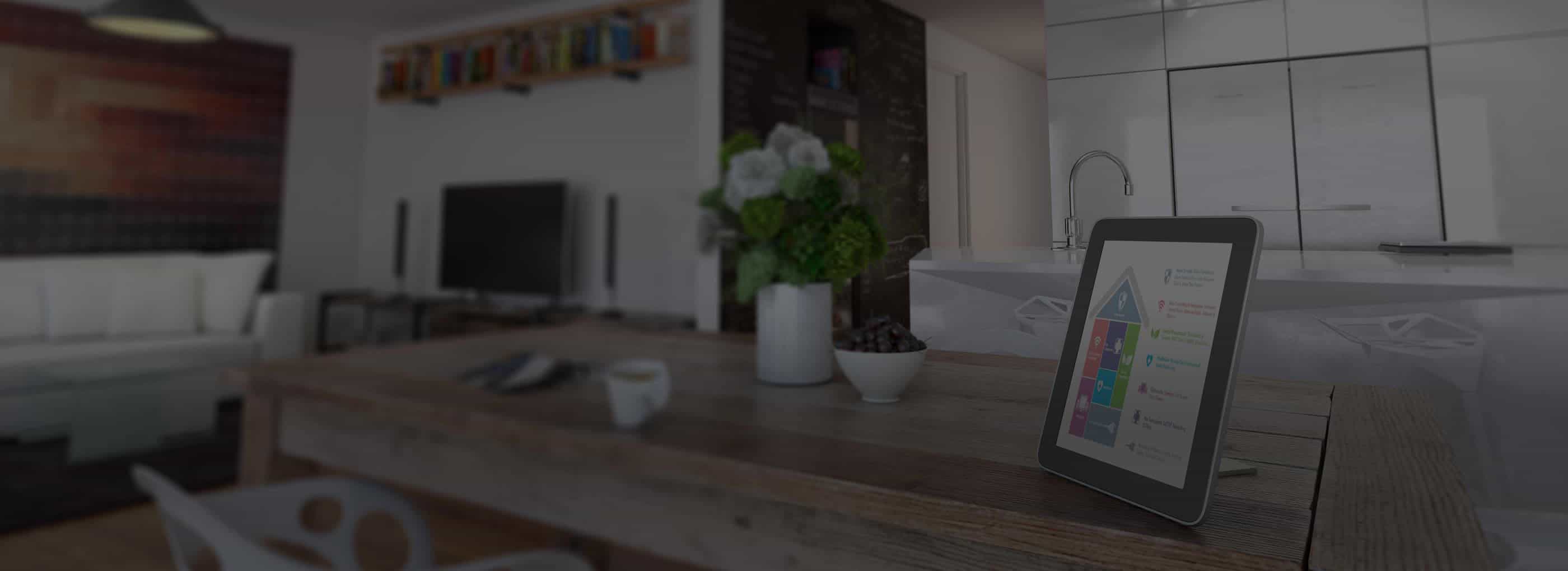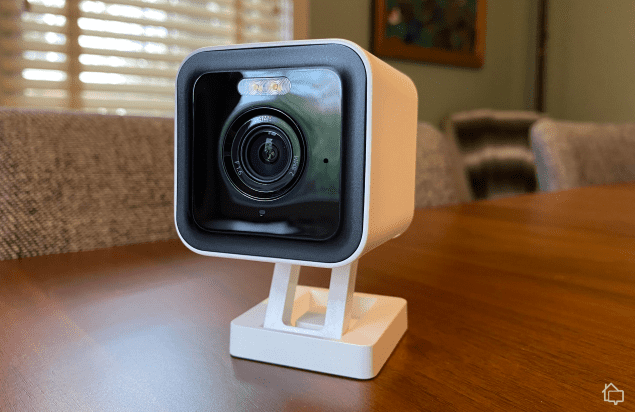
Editor’s Note: While hidden cameras in offices might be legal in some places, they’re not entirely recommended. If you’re an employer and want peace of mind knowing your property is safe, we have a better solution. Check out our guide on the best office security systems for the most protection.
A Pew survey from a few years back unearthed a fascinating statistic. When asked if video surveillance in the workplace was OK, only 24 percent of Americans said no.1 Shocked? Don’t be. There are cameras everywhere these days — on street corners and buses, in stores, banks, schools, and homes. Why shouldn’t we have cameras watching over our work cubicles, too — especially when those cameras can help catch and deter thieves and keep employees honest?
True enough. But before you run out and buy a box of brand name security cameras for your office, there are a few things to consider about workplace spying, not the least of which is figuring out if it’s legal where you live.
In this home security guide, we’re going to answer those big questions and tackle a few of the finer points of office monitoring, including:
- Why you might consider installing cameras in the office
- What the law on workplace surveillance (overt and hidden) says
- Where employee privacy figures into the equation
- The difference between video and audio recording
Did You Know? When money goes missing from banks, it’s usually not robbers. Bank employees are behind 84 percent of bank theft.2
Why Use Cameras in the Office
Employers turn to surveillance cameras in the workplace for a number of reasons, but the most common is theft — not just catching thieves red-handed in the aisles and at the register, but catching their own employees. The statistics here are a little murky, but data analysts suspect the percentage of workers on the payroll that steal from their bosses could be as high as 75 percent.3
That’s huge, I know. But the fact is, corporate theft costs businesses upwards of $50 billion per year, with retail businesses bearing the brunt of it. To put that into perspective, in 2022, the total U.S. bill for cybercrime came out to $10.2 billion.4
Retail businesses aside, some employers feel that employees who know they’re being watched are more productive. The jury is still out on that. However, there is evidence to suggest that employees with cameras over their shoulders may indeed work faster, but not necessarily better.5
Those are the reasons employers choose to install security cameras in the workplace. Now let’s take a look at the surveillance laws on the office floor, specifically the laws on hidden cameras.
FYI: In 2021, Amazon developed new factory monitoring tools that were supposed to slow the spread of COVID, but the constant surveillance had an unwanted side effect: making employees feel “afraid” and “mentally and physically exhausted.”6
Are There Workplace Surveillance Laws?
Like the security cameras we install in our homes, cameras installed in privately-owned places of business are legit, whether inside or out, as long as employers have a justifiable reason for installing them.
Reasons vary, but the most common are providing security and deterring theft. As you can imagine, employers can get a lot of mileage out of both, so you’d have a tough time convincing a judge that either would be violating your rights as an employee.
However, there are fairly strict laws governing the use of cameras in the office: where you can put them, what kinds of cameras you can install, and what you can record. These laws are there to protect employees from harassment and invasive snooping. Let’s start with where you can and can’t put cameras in the office.
Pro Tip: These days, the best DIY security systems make it pretty easy to get your security cameras up and running. But sometimes installing cameras is easier said than done. For some tips on getting your cameras out of the box and onto the wall, check out our complete guide to installing security cameras.
Where Can You Put Cameras in the Workplace?
Let me just say here that most employers are not voyeurs. Maybe more to the point, they simply don’t have the time, or budget, to spy on their employees. They’ve got businesses to run! So most security cameras will be covering stock rooms, cash registers, entrances, windows, and maybe corridors. They won’t be peering over your shoulder.
That said, all 50 states have some variation of a law on the books that bars cameras from any space within a business where employees have a “reasonable expectation of privacy.” Bathrooms, locker rooms, and changing rooms are the usual suspects here.
>> Also check out: Security Camera Legality Breakdown
Generally speaking, that’s the only big exception to workplace surveillance. But — and a very big but that can land employers in serious trouble — certain states have even stricter laws. In California, for instance, business owners can’t record employees in break rooms or lounges, which, I’ve got to admit, is a law I like.
Bottom line? While the law on where you can place security cameras is pretty lax, business owners should always brush up on local labor laws before installing cameras in the office.
FYI: Companies are strictly forbidden from recording union meetings. That’s a right enshrined in Section 7 of the National Labor Relations Act of 1935.7
Are Hidden Cameras in the Office Legal?
The laws on hidden office cameras are a little different from the laws on hidden cameras in homes. Barring a few states, they’re legal but not really recommended for a number of reasons — the number one being that snooping on guests and nannies is creepy. (If you’re planning on running some covert ops inside your home, try an inconspicuous camera like the Blink Mini or SimpliSafe’s SimpliCam instead.)
In offices, if an employee catches wind of a hidden camera and sues, unless there’s a very good reason for it, the law will probably be on their side. So, in most workplace situations, I’d say that hidden cameras are, if not illegal, a very bad idea.
That said, there are a handful of states where hidden cameras are flat-out not allowed in offices. Those states are: Alabama; Arkansas; Delaware; Georgia; Hawaii; Indiana; Michigan; and Utah.
But more than any of that, spying on office workers is just bad for office morale. Employees submit to all sorts of “productivity monitoring” already, down to the keystroke and mouse click in some cases, and it’s driving them batty.8 If they find out they’re also being surveilled from the plant pot, they may not sue, but they very well may go look for another job sans snooping.
Did You Know? In August 2022, a 54-year-old California man named Steve Novelli was charged with illegally installing two hidden video cameras in the bathroom of a Walnut Creek Starbucks. He now faces over 83 felony charges, including attempting to produce child pornography and eavesdropping.9
What Can You Record in Work Spaces?
So far, we’ve only looked at video recording, but don’t forget, security cameras these days also capture audio. And the law on audio recording is kind of interesting.
Federal law says that if there are two people (parties) having a conversation, in order to record it, at least one of them has to: 1) be there in person, and 2) consent to the recording.
Where does this leave eavesdropping bosses? Basically, without much legal footing. If you’re an employer who listens in on employee conversations via your security cameras, and you’re not a party to those conversations, you’re violating the law. Basically, you can’t play Wizard of Oz.
That’s what the federal law has to say, but there are a handful of states where both parties have to consent to the recording. The two-party consent states are: California; Connecticut; Delaware; Florida; Illinois; Maryland; Massachusetts; Michigan; Montana; Nevada; New Hampshire; Oregon; Pennsylvania; Vermont; and Washington. Business owners in any of these states not only have to be present to record a conversation with an employee, they have to get the employee’s permission, too. To satisfy both of those requirements, they’d need a very good excuse.
Pro Tip: Has employee monitoring gone too far? ESW Capital, a software company in Texas, snaps random photos of their employees’ faces and computer screens while they’re on the clock, generating instant “timecards” that bosses score. The lack of a keystroke or mouse movement is all it takes to get you a “bad” timecard, which will cost you 10 minutes of pay. Ugh!
The Bottom Line
There are some perfectly legitimate reasons for using security cameras to keep tabs on your business. Nine times out of 10, those reasons will be keeping criminals off your property and making sure your employees don’t make off with your property. Sadly, sometimes the temptation to steal is too great on both sides.
But if you’re wondering if hidden cameras are legal in the office, the answer to that question is mostly no. If a case ever went before a judge, employers would be hard-pressed to prove they had reasonable cause to spy on their employees clandestinely. And, honestly, we’re probably better off that way. God knows we’re up to our neck in surveillance already, both inside and outside the office.
At the end of the day, if I was interested in protecting my business, I’d forget about spying and invest my money in a reliable business security system instead. Scroll down for my top three picks.
FAQs
- Are hidden cameras legal in the office?
Laws vary by state, but generally speaking, no.
- Can bosses record audio at work?
Unless they’re part of the conversation, no. In some states, employers also need permission from other workers to record audio.
- Can employers put cameras in break rooms and company lounges?
In some states, there’s no law saying that employers can’t monitor rooms where staff gather; in others, it’s illegal. For the law in your state, check your local labor laws.
- Do office security cameras help businesses?
Yes, CCTV cameras do deter would-be thieves, whether they’re there to rob you or they work for you.
- What are the top security systems for businesses?
Our top three picks for best business security systems are: ADT for business, Vivint business security solutions, and Frontpoint security systems.






